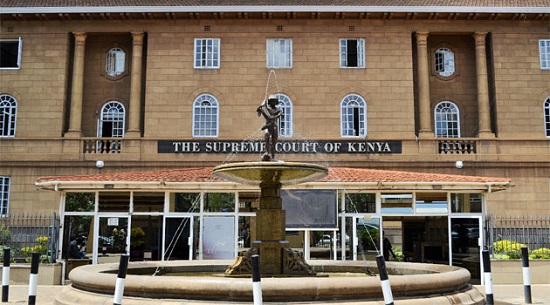The Supreme Court
- It is the highest court in Kenya.
- It is headed by the
Chief Justice.
- The Deputy Chief Justice deputises the Chief Justice.
- There are other 5 judges.
- It hears and determines election petition of the president.
- It also hears appeals from other courts.
 The Court of Appeal
The Court of Appeal
- It is made up of court of Appeal judges.
- The number of judges should not be less than 12.
- It is headed by a judge elected by other judges amongst themselves.
- The court of Appeal hears and determines appeals from other courts.
The High Court
- It is made up of High court judges.
- The High court hears and determines election petition of members of parliament.
Note
- The supreme court, court of appeal and high court are called
superior courts.
- These courts have judges appointed by the presidents.
Subordinate courts
- Subordinate courts in Kenya are;
- Magistrate's Courts.
- Kadhis' Courts.
- Court Martial.
Note
- These courts have magistrates appointed by the Judicial Service Commission (JSC).
- Kadhi's courts hear and determine civil cases involving person's of Islamic faith.
- Court Martials try members of the Kenya Defence Forces.
Other courts in Kenya
-
Children's (Juvenile) courts - they deal with case involving minors (persons under 18 years).
-
Anti - corruption courts - they deal with cases of corruption and abuse of public office.

